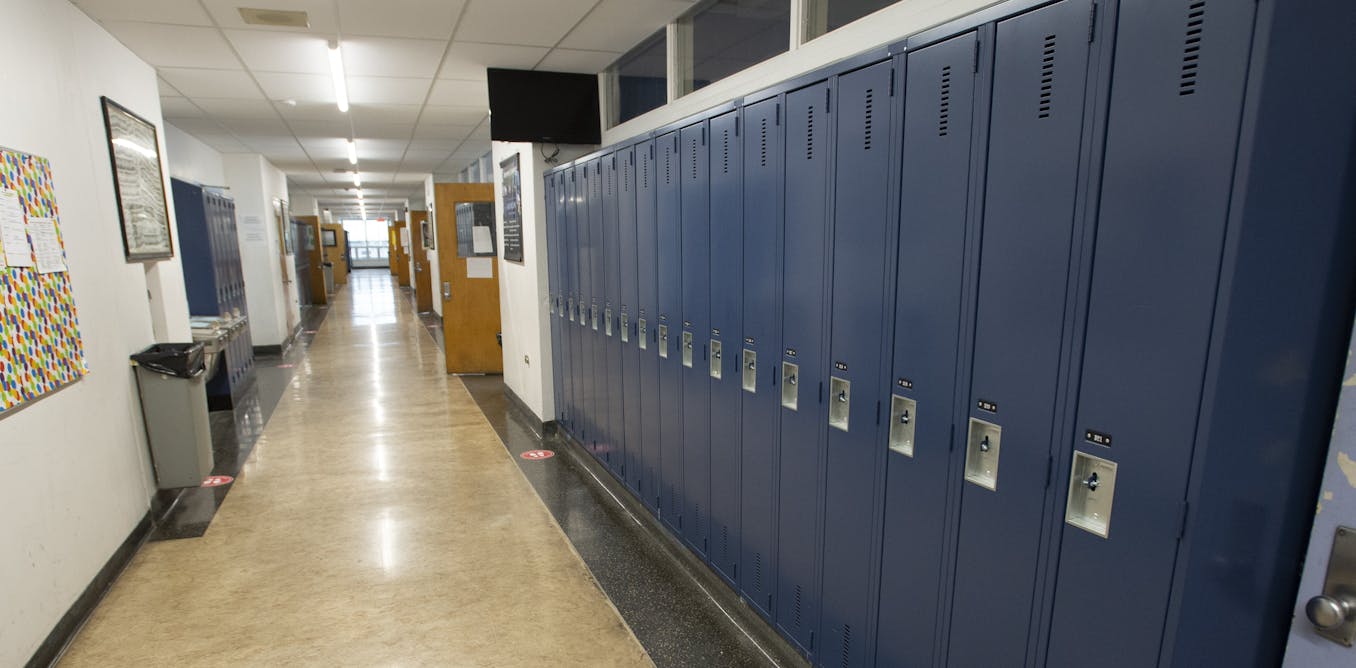Education
Language Classes for Immigrant Students Highlight Systemic Inequities

Different countries adopt various models to assist immigrant students in learning the language of instruction. In Québec, the classe d’accueil, or welcoming class, forms an integral part of the linguistic, school, and social integration program overseen by the Ministry of Education of Québec. This class is designed for students who require additional support to enhance their language skills, ranging from preschool to high school. It is particularly prevalent in secondary schools and urban areas such as Montréal, where a significant number of students are learning the language of instruction.
Students who do not possess adequate French proficiency are placed in the welcoming class, where they primarily focus on learning French alongside subjects like math, arts, and physical education. These classes operate separately from mainstream education, raising concerns about the long-term implications for students’ academic trajectories.
Research conducted as part of a doctoral program examined the placement procedures for newly arrived immigrant high school students in Montréal. This study involved the analysis of various forms of data, including school documents, observations, and interviews with 37 school workers and 7 students. The findings indicate that, despite the welcoming class being characterized as a transitional phase toward mainstream education, the reality is often more complex.
Long-Term Effects of Placement Decisions
Some students may spend years in the welcoming class if deemed unprepared for mainstream classes. For older teenagers who arrive with limited language skills, there is a substantial risk that they will be directed toward adult education after secondary school. This can result in them studying alongside significantly older peers, potentially affecting their motivation and future opportunities. Furthermore, some students may find themselves placed in special education settings, which can lead to perceptions of learning disabilities or channel them into technical programs that prepare them for immediate entry into the workforce.
The study highlighted a concerning tendency among school workers to view students who struggle to adapt as having individual or cultural “deficits.” These deficits may manifest as learning difficulties or academic delays. While some school workers recognized systemic issues within the educational framework, they noted that the school systems often lack adequate resources to support the unique needs of immigrant students.
Informed Decisions and Family Engagement
Students reported feeling inadequately informed about the education system in their host province, leading them and their families to accept placement decisions, whether in the welcoming class, adult education, or special education, without fully understanding the implications. Research indicates that many immigrant parents are unfamiliar with the local education system and may be reluctant to question recommendations made by school professionals. Given their primary concern for their children’s safety and education, parents often place their trust in the educational system.
The consequences of lengthy placements in welcoming classes, along with transitions to special education or adult education, can profoundly affect the lives of immigrant students, particularly those from racialized or low-income backgrounds. These placements can exacerbate feelings of otherness, as recognized by other researchers. The discourse surrounding integration can obscure the categorization and management of students based on their conformity to prevailing norms.
This situation does not imply that educators and administrators lack good intentions regarding the placement of immigrant students. Many strive to support these students within a challenging system. Nevertheless, if the educational system perpetuates inequalities, acknowledging good intentions is insufficient.
To promote equitable education for all students, several measures are essential:
1. **Provide clear and accessible information** about rights and options to immigrant families, including adequate support such as translation services and ensuring full student and parent participation in decision-making processes.
2. **Train and support educators** in adopting asset-based approaches rather than deficit-based thinking, thereby validating diverse learning methods.
3. **Consider inclusive models** within mainstream classrooms, ensuring schools have sufficient resources to facilitate a wider range of educational placements.
By adopting more flexible, equitable, and student-centered approaches, educational systems can better support academic success for all students.
The research conducted during the doctoral program received financial backing from the Fonds de recherche du Québec – Société et Culture (FRQSC) and the Social Sciences and Humanities Research Council of Canada (SSHRC).
-

 World3 months ago
World3 months agoScientists Unearth Ancient Antarctic Ice to Unlock Climate Secrets
-

 Entertainment3 months ago
Entertainment3 months agoTrump and McCormick to Announce $70 Billion Energy Investments
-

 Lifestyle3 months ago
Lifestyle3 months agoTransLink Launches Food Truck Program to Boost Revenue in Vancouver
-

 Science3 months ago
Science3 months agoFour Astronauts Return to Earth After International Space Station Mission
-

 Technology2 months ago
Technology2 months agoApple Notes Enhances Functionality with Markdown Support in macOS 26
-

 Top Stories1 week ago
Top Stories1 week agoUrgent Update: Fatal Crash on Highway 99 Claims Life of Pitt Meadows Man
-

 Sports3 months ago
Sports3 months agoSearch Underway for Missing Hunter Amid Hokkaido Bear Emergency
-

 Politics2 months ago
Politics2 months agoUkrainian Tennis Star Elina Svitolina Faces Death Threats Online
-

 Technology3 months ago
Technology3 months agoFrosthaven Launches Early Access on July 31, 2025
-

 Politics3 months ago
Politics3 months agoCarney Engages First Nations Leaders at Development Law Summit
-

 Entertainment3 months ago
Entertainment3 months agoCalgary Theatre Troupe Revives Magic at Winnipeg Fringe Festival
-

 Politics1 week ago
Politics1 week agoShutdown Reflects Democratic Struggles Amid Economic Concerns





















